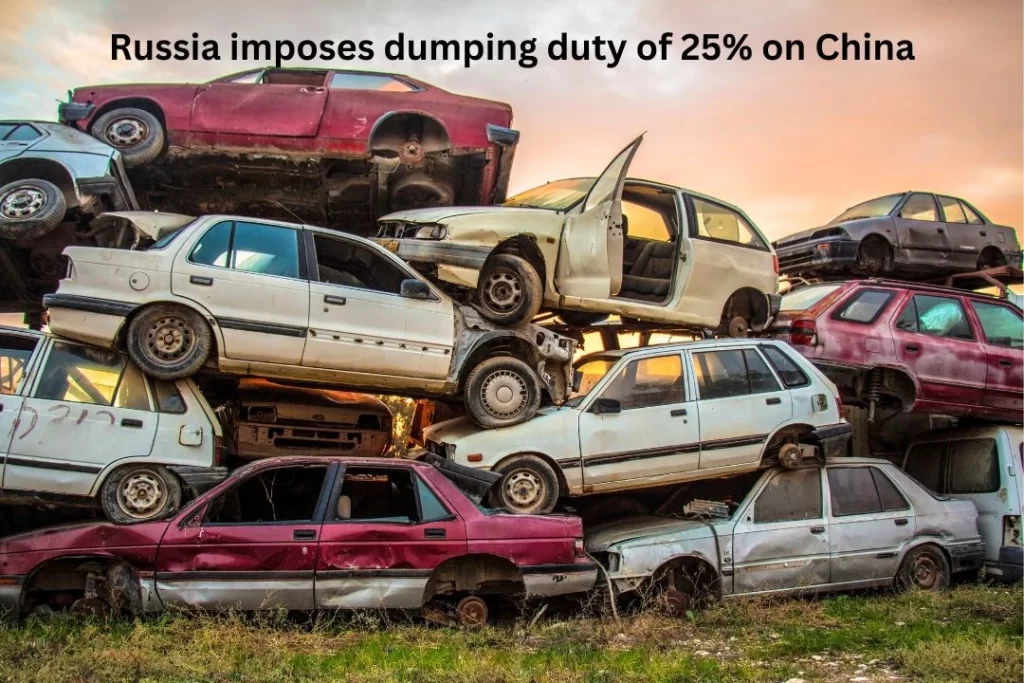In a significant move, Russia has announced a 25% anti-dumping duty on Chinese-made cars, citing concerns over market distortion and unfair competition. This decision comes as Chinese automakers expand aggressively into international markets, particularly in Russia, which has seen a surge in Chinese car imports following Western sanctions on Moscow.
The Russian Ministry of Industry and Trade stated that the temporary duty, effective immediately, is aimed at protecting domestic manufacturers from an influx of low-cost Chinese vehicles that threaten local carmakers. The decision follows a months-long investigation into pricing practices by Chinese auto brands, with Russian authorities concluding that state-backed subsidies in China have allowed manufacturers to sell vehicles below fair market value, undercutting Russian and other foreign automakers.
China, now the world’s largest auto exporter, has heavily relied on the Russian market since Western car manufacturers withdrew due to sanctions. With over 40% of Russia’s new car sales coming from Chinese brands in 2024, the newly imposed duty is expected to disrupt this booming trade and put pressure on Chinese automakers.
Some potential consequences include:
- Slower Growth in Russian Market – With higher prices due to the added duty, Chinese automakers may struggle to maintain their competitive edge, leading to a potential decline in sales.
- Stockpile Challenges – Many Chinese car brands had ramped up production and exports to Russia. The duty may force them to rethink inventory strategies or offer deeper discounts to remain competitive.
- Diversification of Exports – Chinese manufacturers may shift focus to other emerging markets, including Latin America, the Middle East, and Southeast Asia, to compensate for potential losses in Russia.
- Tensions in China-Russia Trade Relations – While both countries maintain strong diplomatic ties, this move adds friction to their economic relationship, potentially leading to countermeasures from Beijing.
China’s Ministry of Commerce criticized the duty, calling it an unjust trade restriction that harms mutual economic interests. Industry experts believe China might retaliate with countermeasures, possibly targeting Russian exports in sectors like energy, metals, or agriculture.
In the long run, this move by Russia could push Chinese automakers to accelerate domestic demand growth and further innovate in global trade strategies. However, the immediate impact is likely to be felt by companies such as BYD, Geely, Chery, and Great Wall Motors, all of which have expanded their footprint in Russia over the past two years.






